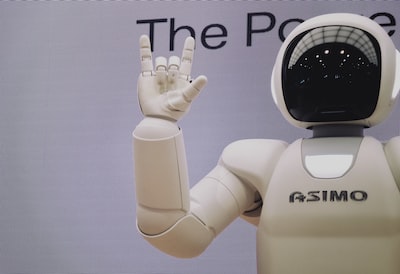Machine learning in email analysis has revolutionized the way we interpret and understand the vast amount of information flooding our inboxes every day. With its ability to sift through mountains of messages, machine learning algorithms have become an invaluable tool for copywriters seeking to optimize their email marketing campaigns.
By harnessing the power of artificial intelligence, these algorithms can analyze patterns and trends within email data, allowing copywriters to tailor their messages to individual recipients with unprecedented precision. But what does this mean for the future of email marketing? Will we see a wave of personalized content or simply an invasion of privacy? In this article, we explore the burgeoning field of machine learning in email analysis and its implications for copywriters.
Machine learning in email analysis. The era of artificial intelligence has shattered conventional notions of human creativity.
In the battle for supremacy between man and machine, AI copywriters have emerged as potent contenders. But amidst the allure of efficiency, we must ask: will machine learning truly triumph over human creativity in email analysis? This question poses a perplexing conundrum, beckoning us into the uncharted territory of the technological revolution.
As algorithms tirelessly mine data to discern patterns and generate content, skepticism lingers. Can a machine capture the nuances, the quirks that make for compelling email copy? Yet, the promise of increased productivity and precision cannot be ignored.
Already, AI copywriting tools have shown their mettle, crafting engaging subject lines with uncanny accuracy. But as we reconcile the gains of automation, we must also reckon with the potential pitfalls.
The risk of losing that unique human touch, the artistry that lies within each carefully crafted word. And so, the stage is set for an epic clash of brains and bytes, where the destiny of email analysis hangs in the balance.
Shall we relinquish creativity to the machines, or shall we champion the inventive prowess that defines our human spirit? The answer, my dear reader, remains elusive – as elusive as the fusion of art and science, as elusive as the enigmatic realm of machine learning in email analysis. And so, we embark on this journey, armed with curiosity, driven by the pursuit of truth.
Table of Contents
Introduction to AI Copywriters in Email Analysis
In the ever-evolving digital landscape, AI copywriters have become the latest trend in email analysis. With the rapid advancement of machine learning algorithms, the question arises – will AI surpass human creativity in crafting compelling email copy? Harnessing AI for improved email copywriting has its merits, as it can automate the repetitive task of writing persuasive content.
According to a study from MarketingSherpa[source], incorporating AI-generated subject lines resulted in a staggering 35% increase in email open rates. However, there are concerns about the potential loss of the personal touch and emotional connection that human copywriters bring.
Can algorithms truly capture the nuances of language and tailor messages to evoke genuine responses? Is there an art to writing that remains exclusive to human creativity? As AI copywriters make their mark in the email analysis domain, the battle between artificial intelligence and human ingenuity rages on, challenging us to explore the boundaries of creative expression.
Understanding the role of Machine Learning in Copywriting
Artificial intelligence (AI) is rapidly advancing, and there is a debate about whether it can surpass human creativity in different fields, such as copywriting. AI-powered algorithms are now being used to analyze and create captivating email content.
One advantage of using machine learning in email analysis is its ability to quickly process large amounts of data, extract important insights, and mimic human writing styles. However, critics argue that AI may lack the nuanced understanding and contextual comprehension that human writers possess, even though it can generate copy at a fast speed.
Despite these arguments, the benefits of using machine learning in email analysis cannot be ignored. It offers efficiency, scalability, and the potential to personalize content for individual recipients.
As artificial intelligence continues to advance, it is an exciting time to explore the relationship between human creativity and machine-driven intelligence in copywriting.
Evaluating the strengths and limitations of AI Copywriters
Can machine learning revolutionize email content creation? AI Copywriters argue that algorithms can analyze data, detect patterns, and generate compelling copies quickly. However, skeptics question if machines can truly replicate human creativity and emotional intelligence.
While AI Copywriters offer efficiency and scalability, they may lack the ability to deeply resonate with audiences. The role of machine learning in improving email content is debatable in marketing circles.
Balancing human creativity and algorithms may be the key to successful email campaigns.
The impact of AI in enhancing email marketing campaigns
Machine learning’s impact on email marketing is a fascinating topic in the ever-changing marketing world. Will AI copywriters exceed human creativity in analyzing emails? The potential is vast.
Machine learning algorithms can process large amounts of data and identify overlooked trends and patterns, providing marketers with valuable insights into consumer behavior. This allows them to personalize their messages to resonate with their target audience on a deeper level.
However, there is a balance to maintain. While automation and efficiency are beneficial, is there a risk of losing the human touch? Can AI truly replicate the empathy, intuition, and emotional intelligence that human copywriters possess? Only time will reveal the true impact of AI on email marketing as businesses continue to experiment and adapt to this new world.
The human touch: Can creativity be replicated by machines?
In the advertising industry, the question of whether machines can exceed human creativity is a significant concern. The use of AI copywriters has sparked a fierce debate.
Will machine learning algorithms eventually surpass human writers in email analysis? This article section examines the complexities of this argument. On one hand, supporters of AI argue that machine learning can analyze data on an unprecedented scale and identify patterns that humans might overlook, resulting in more effective emails.
On the other hand, skeptics argue that machines cannot replicate the creativity and empathy that are characteristic of human ingenuity. Where does the truth lie? Can machines truly compete with the human touch? And how does this relate to the expanding world of SEO and AI in copywriting? Join us as we explore this captivating intersection of technology and creativity.
Concluding thoughts: Striking a balance between AI and human input
The debate over whether machine learning can surpass human creativity is increasingly relevant in a world dominated by artificial intelligence (AI). The rise of AI-powered email analysis tools has sparked a conversation about the future of copywriting and the role of human input.
While some argue that AI can revolutionize email creation and analysis, others believe that human creativity still has a special role in communication. Striking a balance between AI and human input is crucial for optimal results.
AI can provide valuable insights and automate tasks, but it lacks the emotional intelligence and nuanced understanding of humans. Ultimately, it is the combination of AI’s efficiency and human creativity that will propel email analysis to new heights.
Transforming Your Email Experience: Introducing Cleanbox, the Innovative Tool That Declutters and Protects Your Inbox.
Cleanbox is a groundbreaking tool that is transforming the way we manage our email inboxes. With its advanced AI technology, Cleanbox makes it easy to streamline and organize your email experience.
Gone are the days of sorting through cluttered inboxes and falling victim to phishing attacks. Cleanbox automatically categorizes incoming emails, separating priority messages from spam and malicious content.
Its machine learning capabilities ensure that it gets smarter over time, adapting to your preferences and needs. Cleanbox not only declutters your inbox but also protects your personal and professional information by warding off potential threats.
This innovative tool is a game-changer for individuals and businesses alike, offering a seamless and secure email experience. Say goodbye to email overwhelm and hello to the future of efficient communication with Cleanbox.
Frequently Asked Questions
AI Copywriting is the use of artificial intelligence and machine learning algorithms to generate written content, such as marketing emails and ad copies, without human involvement.
AI Copywriters have the ability to generate written content quickly and efficiently, but they cannot completely replace human copywriters. Human creativity, intuition, and understanding of nuanced language are still important for crafting compelling and persuasive copy.
AI Copywriters analyze emails by using natural language processing algorithms to understand the content and context of the messages. They can identify keywords, sentiment, and patterns to generate relevant and engaging responses.
AI Copywriters can produce high-quality content and achieve consistent results at scale. However, human copywriters with their creativity and ability to empathize with the target audience can often produce more emotive and impactful copy.
Ethical concerns may arise with AI Copywriting, primarily related to issues such as plagiarism, bias, and the dissemination of false or misleading information. Careful monitoring and oversight are necessary to ensure ethical practices.
Yes, AI Copywriting has certain limitations. It may struggle with generating highly creative or abstract content and may lack the emotional intelligence required to truly connect with consumers on a deep level.
AI Copywriters and human copywriters can work together in a collaborative manner. AI Copywriters can assist with generating initial drafts or providing data-driven insights, while human copywriters can add their creativity and expertise to refine and polish the copy.
In a Nutshell
In an age dominated by technology, the world of marketing has found itself at the forefront of innovation once again. As businesses strive to capture the attention of their target audience, the role of copywriters has evolved to meet the demands of the digital age.
Enter the machine learning email analysis copywriter, a hybrid profession that combines the art of persuasive writing with the power of data analysis. But what does this mean for the future of marketing? Will machines eventually replace human creativity? The answers remain elusive, filled with both promise and uncertainty.
On one hand, machine learning has undoubtedly revolutionized the way we approach email marketing. With the ability to quickly analyze vast amounts of customer data, these automated systems can generate personalized email campaigns that speak directly to the recipient’s needs and desires.
This level of personalization has the potential to significantly boost engagement and conversion rates, as customers feel understood and catered to on an individual level. However, the question of whether machines can truly replicate the nuances of human creativity still lingers.
While algorithms can certainly generate effective copy based on previous successful campaigns, they often lack the human touch that comes from experience, intuition, and emotional intelligence. A well-crafted email goes beyond logical persuasion; it taps into the reader’s emotions, evokes empathy, and establishes a genuine connection.
Can machines ever truly replicate these qualities?Some argue that the rise of machine learning in copywriting is a cause for concern, as it may lead to a homogenization of marketing messages. If every email campaign becomes data-driven and formulaic, will companies lose their unique voices and fail to stand out in a sea of generic emails? Will customers become desensitized to the barrage of automated emails flooding their inbox? It is a valid concern that demands further exploration.
Despite these uncertainties, the machine learning email analysis copywriter holds immense potential. By leveraging the power of data and combining it with human insight, this emerging profession has the ability to unlock new levels of success in email marketing.
The key lies in striking a balance between automation and the human touch, finding a way to marry data-driven analysis with creativity and emotional intelligence.In conclusion, the machine learning email analysis copywriter represents a fascinating intersection of technology and creativity, raising profound questions about the future of marketing.
While the potential benefits are undeniable, it is essential that we carefully navigate this uncharted territory. By embracing the power of machine learning while preserving the artistry of writing, we can harness the full potential of this hybrid profession and redefine the way we connect with customers in the digital age.







 in Wyoming
in Wyoming